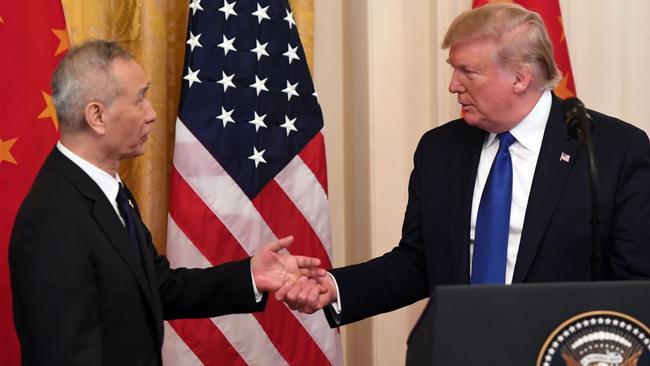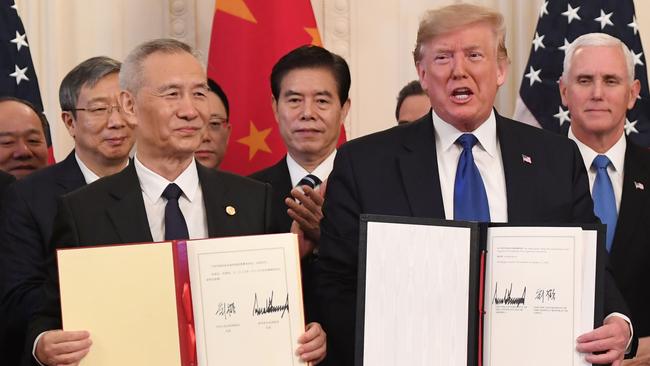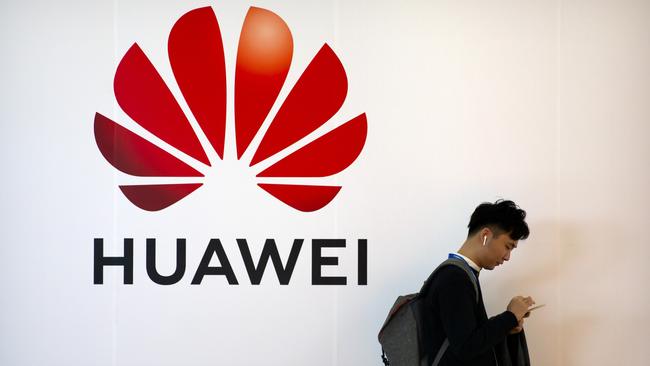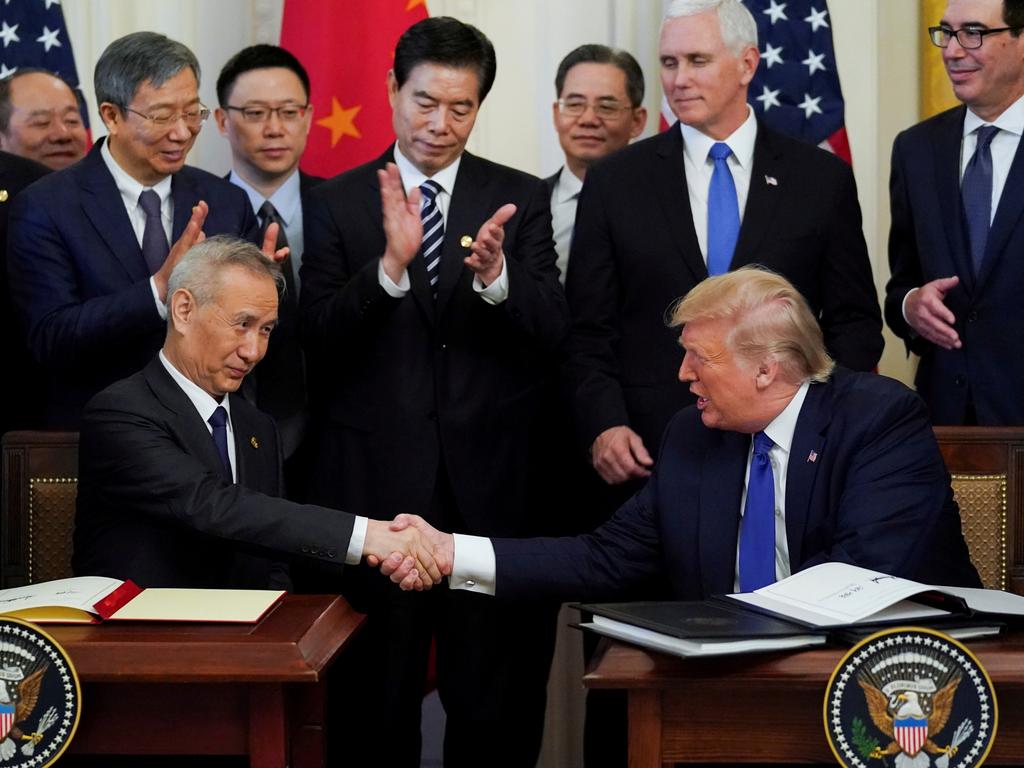
The US now plans further tax cuts and almost certainly its labour shortages will increase. US inflationary pressures may also rise with obvious implications for interest rates.
The deal underlines Australia’s weaknesses and industries like agriculture will need to be very skilled and flexible to meet the challenges.
But the deal also masks the fact that China is playing a long term game to dominate world artificial intelligence and telecommunications systems.
Around the start of the century, to kickstart the thrust, China started to steal technology and often demanded access to the technology of companies that wanted to trade in China.
When President Trump changed the trade rules and imposed what seemed to be ever-increasing tariffs, he caught the Middle Kingdom at a vulnerable time because it was still very dependent on the US.
That’s why China has signed a deal that looks to be very favourable to the US - it’s buying time.

While the immediate implications of the deal are important, Australians need to understand the hidden war.
Artificial intelligence (AI) is going to propel the technology development of nations and those that succeed in the AI game will be the global winners.
But the “skill” of AI machines is related to the amount of data that is assembled. And so modern AI machines can outsmart top lawyers, but only if they have the data. The skill of nations to assemble vast databases will determine their ability to harness the power of artificial intelligence.
China understands this phenomenon better than any other nation and its population is plugged into so-called “social credit” databases that monitor their behaviour,
The US has nothing like that, but it has remarkable data stored in Amazon, Apple, Facebook, Google and Microsoft. In part reflecting the power of their databases, those companies make up 18 per cent of the total market capitalisation of the world’s most important index--- America’s S&P 500.
None of these companies will want to share their data but over time the data will be made anonymous and will be used by AI machines to drive not only products and services but developments where we have no current concept.
It will add a new dimension to the development of nations. Australia must find a way to join this game by developing specialist databases in areas like agriculture.
The second aspect of the hidden trade war started when, two decades ago, the US
began outsourcing key production to China, enabling China to develop its telecommunications industry and embed its intelligence into the US internet system, which is now akin to electricity in driving nations.
The great driver of this China strategy was Huawei. Today, Huawei, with state backing and the best technology, dominates the global telecommunications market, swamping rival companies. The development of the 5G and subsequent mobile communications systems will transform world communication. The country that dominates 5G will effectively own many areas of innovation and set the standards for the rest of the world.. They will be vital in defence. China and Huawei was set to take that position until Trump intervened.
But currently Huawei, and in many other Chinese areas of high technology, China still relies on key components from the US. They need time to become independent.
The US, on defence grounds, want its allies to unhook from Huawei to prevent this dominance emerging. Australia has responded with Telstra linking with Ericsson and Optus with Nokia. But both Ericsson and Nokia are way behind Huawei so we –along with the US ----are in danger of having a second class telecommunications system.
In the UK, Boris Johnson understands the dilemma facing the US and its allies as a result of under investment in this area.

The first stage of the trade deal is about China buying US goods and services led by agriculture and oil. Our iron ore and LNG look safe but in agriculture we will need to concentrate in areas where the US is not strong. The US will abandon the deal and resume the trade war if China does not buy the goods it has guaranteed. On the other side the US has to develop the capacity to supply those goods.
The first stage of the deal also stops the technology theft and blackmail. The second stage of the deal will not be easy because it is aimed at curbing China’s long-term dominance in artificial intelligence and telecommunications. In recognition of the difficulty of the US actually supplying and China buying all the goods that the first stage requires, the deal looks easy to exit.
Longer term Australia is not well prepared to enter this new era, which will see much more sophisticated supply chains emerging.
Our natural trading partner is China but for defence reasons we are moving into the US orbit.







The US China trade deal is good for share markets and removes the threat of a major economic reversal in China caused by the US clamps.